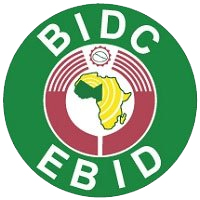
Context
Africa’s youth population is projected to double, exceeding 830 million people by 2050. Properly harnessed, this increase in the working-age population could drive productivity and foster robust, inclusive economic growth across the continent. More than 60% of the ECOWAS (Economic Community of West African States) population is under 25, representing a significant opportunity. Young people are considered a nation’s greatest asset, contributing to economic development and sociopolitical progress through their creative talents and labor.
However, the youthful population also presents a challenge, as there are few employment opportunities for these young individuals due to various reasons. The youth of West Africa hold tremendous potential, but the economic, healthcare, and educational systems are not evolving quickly enough to meet their needs. While some young people lack the skills required for traditional and innovative jobs, there is a growing number of highly skilled and academically qualified young people who still lack job opportunities. Each year, higher education institutions produce hundreds of thousands of graduates with insufficient job prospects. Moreover, the impact of the COVID-19 pandemic has led to innovative educational methods and skill enhancements, further increasing the number of qualified youth.
This poses a significant challenge for governments in the sub-region, as public sector payrolls are already overloaded, with limited capacity to absorb the large number of young unemployed individuals each year. Consequently, more young people are turning to entrepreneurship, but only a few succeed due to the harsh economic realities faced by startups in the ECOWAS sub-region. Additionally, there is a growing risk of brain drain due to youth migration.
Webinar Theme
The theme of the webinar is “Tackling the Enigma of Youth Unemployment,” with a particular focus on job creation for youth through a symbiotic partnership between governments and private sector actors. There is untapped potential for West African countries to transform their economic structures from low-skilled, labor-intensive manufacturing industries to value-added industries, leading to industrialization. Enhanced collaboration between government agencies and private sector actors could create a more stable and secure operational environment, as well as a favorable business climate, ultimately leading to the creation of millions of job and career opportunities.
Webinar Objective
The primary objective is to present practical ways to address the diverse employment needs of youth in the context of entrepreneurship and innovative projects. The webinar targets the youth of West Africa.
Webinar Date May 30, 2024.
- Webinar: 10:00 AM – 11:30 AM
- Workshop: 11:30 AM – 12:30 PM
Target Audience
The webinar is intended for a diverse group of stakeholders, including graduates, SMEs/SMIs, commercial banks, investment promotion agencies, business leaders, development organizations, and the media.
Identified Target Groups:
- Graduates
- SMEs/SMIs
- Regional and non-regional media
- Project sponsors and entrepreneurs
- Financial institutions
- Multilateral development banks
- Industrial associations and chambers of commerce
Webinar Format
The webinar will last 2 hours and 30 minutes and will be conducted via Zoom to allow for interpretation. It will follow a webinar format where participants can only see the panelists.
The first hour and a half will be dedicated to a panel discussion covering two topics in two 45-minute sessions. The final hour will be a workshop limited to a select number of registered participants, providing practical knowledge and guidance on creating a business plan.
Each panel will consist of three speakers from development institutions and the private sector, providing in-depth insights into the topics discussed. A Q&A session will follow each thematic session, and a moderator will lead the event.
The moderator will introduce the webinar theme and the panelists. Each panelist will have 5 minutes to present their perspective on the topic, followed by a 15-minute discussion between the moderator and panelists, and a 15-minute Q&A session with the participants.
Webinar Program (10:00 AM to 11:30 AM)
Panel Session
A. Session 01 The Private Sector – The Foundation for West African Economic Prosperity.
The private sector has the potential to absorb the growing number of young unemployed individuals and bridge the employment gap, transforming West African societies, driving prosperity, and enabling youth to thrive by offering millions of job opportunities. This includes accessing funding and investment opportunities, as well as ensuring transparent and fair business practices.
Questions:
- Due to the lack of salaried jobs, many young people are driven towards entrepreneurship and the informal sector, which represents about 80% of jobs in some countries.
- How can we equip young people with skills that match labor market needs?
- Are there resources for business incubation and guidance in our respective countries?
- How and where can a young entrepreneur with limited collateral access suitable financing instruments while enabling financial institutions to mitigate risks?
- What measures can be taken to address the challenges faced by startups and entrepreneurs in accessing markets and expanding their activities in the ECOWAS region?
- How can we ensure that young people become agents/co-creators of an inclusive environment that meets their employment needs?
B. Session 02 The Public Sector – The Structural Engine of Change.
Governments have the power and responsibility to remove structural barriers that create an unfavorable business climate and hinder potential impact. This theme will detail concrete measures to improve the operational context for SMEs/SMIs in the region, particularly those in the startup phase and owned by young people. These measures include infrastructure development, transparent and fair policies, and determining tax rates.
Questions:
- Tackling youth inactivity is essential if countries are to achieve Sustainable Development Goal 8 on decent work for all by 2030. How can governments and the private sector collaborate more effectively to create better opportunities and market conditions, which are essential pathways for job creation and income improvement for youth?
- Studies have shown mismatches between the skills students acquire in school and those required by employers. Additionally, the secondary impacts of the COVID-19 pandemic have increased digital engagement. A rapid transition to the digital economy can boost productivity and provide jobs for an increasingly tech-savvy population. How can we ensure that education and training systems meet current and evolving labor demand?
- What approaches/policies should our governments adopt to effectively target youth entrepreneurship and training to curb their migration out of the sub-region?
Workshop (11:30 AM to 12:30 PM)
This workshop is aimed at young entrepreneurs and SMEs to enhance their capabilities in producing an effective business plan. It will be led by experts and divided into three groups: one for English-speaking entrepreneurs, another for French-speaking entrepreneurs, and a third for Portuguese-speaking entrepreneurs.



